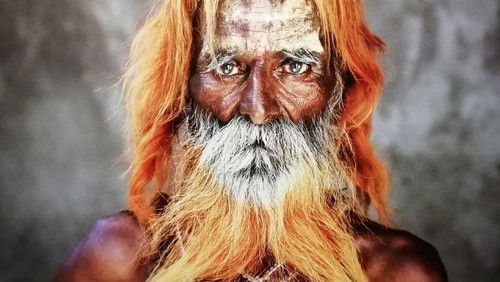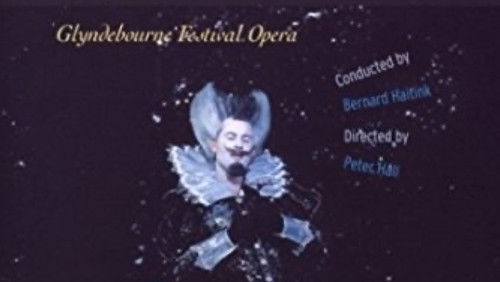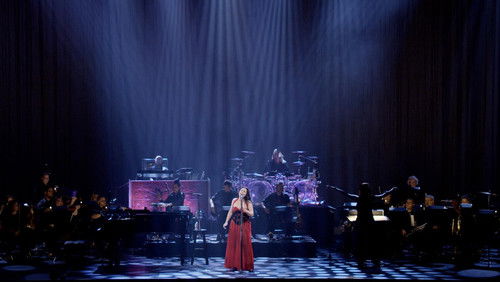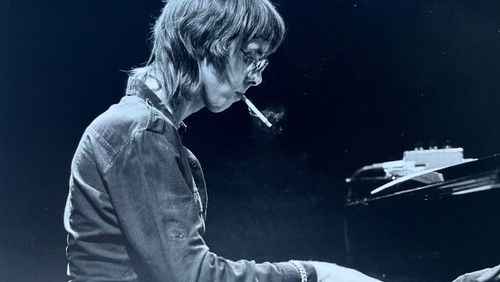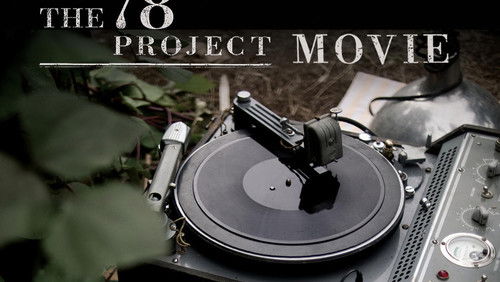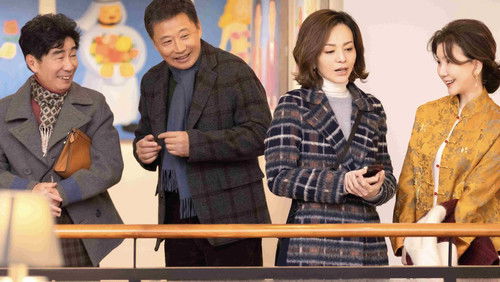20,000 Days on Earth (2014)
11K20,000 Days on Earth: Directed by Iain Forsyth, Jane Pollard. With Nick Cave, Susie Bick, Darian Leader, Warren Ellis. Writer and musician Nick Cave marks his 20,000th day on the planet Earth.
“u0026quot;Who knows their own story? Certainly, it makes no sense when we live in the midst of it. Itu0026#39;s all just clamour and confusion. It only becomes a story when we tell it and retell it. Our small precious recollections that we speak again and again to ourselves or to others. First creating the narrative of our lives and then keeping the story from dissolving into darkness.u0026quot; u003cbr/u003eu003cbr/u003eOccupying a gray zone between documentary and autobiographical fiction film u0026#39;20,000 Days on Earthu0026#39; opens with a counter that, you guessed it, starts at zero and rapidly counts up to 20,000 in a mere 1 1/2 minutes all the while on a couple of screens we see Nick Cave in various stages of his life as well as TV footage that corresponds with the number of days (e.g. a boy smoking pot around day 5,000) or people that apparently were of significance to him around that particular time (so in the early days we for example see Johnny Cash, Elvis and of course Barbara Eden). Itu0026#39;s a loud and chaotic montage that simultaneously serves as the opening credits. The first scene stands in stark contrast to it, through the storm of the past we have arrived in the present day. We see an alarm clock without a seconds hand giving the impression of time virtually standing still. Nick Cave lies in bed staring at his clock before it starts to ring to officially herald the start of day 20,000.u003cbr/u003eu003cbr/u003eThe film that follows feels thorough, self-contained and complete.u003cbr/u003eu003cbr/u003eThorough because it keeps returning to the same memories. First Nick Cave has a session with his psychoanalyst which feels as much like an interview with a journalist as it does like a couch session, for there is no couch but the u0026quot;intervieweru0026quot; asks more psychoanalyst type of questions that very often go back to Caveu0026#39;s childhood days. Questions like: u0026quot;Whatu0026#39;s your earliest memory of a female body?u0026quot; or u0026quot;Whatu0026#39;s your earliest memory of your father?u0026quot;, each question being answered with a story. Later Cave exchanges memories about the Nina Simone concert that he earlier talked about to his psychiatrist with a colleague who was at the concert as well which of course transforms the same story, it becomes fuller, the atmosphere surrounding it changes, etc. Or at another point Nick Cave goes to the Nick Cave archive because of course when you are somebody like Nick Cave you donu0026#39;t keep your old junk in boxes, you get other people to do that for you…anyway. Objects from the stories he told his psycho-guy pop up again or rather he asks for them, like the copy of u0026quot;Lo-li-tau0026quot; from which his father read to him one day and that made little Nick see a side of his father that he hadnu0026#39;t known before. Or a picture of Susie, who became his wife, which leads into a dazzling multimedia collage of sight, sound and spoken word about Nick Caveu0026#39;s erotic fantasies that climaxes where all good erotic fantasies climax, with Jackie Kennedy at JFKu0026#39;s funeral. Songs come back also, he writes a song, practices a song, records a song, records a background track with a childrenu0026#39;s choir, and finally performs it in the Sydney Opera House in front of a big audience.u003cbr/u003eu003cbr/u003eSelf-contained it feels because there is a clear core theme which always is a challenge in an (auto)biographical film, because how can a human life be summed up to one idea? Here that idea is that Nick Cave basically lives as a vessel for his memories, to acquire them, to put them into a narrative in order not to forget them, and to use them to create songs. His greatest fear, he says, is losing his memory. u0026quot;…in some way thatu0026#39;s really what the process of songwriting is for me. Itu0026#39;s the retelling of these stories and the mythologizing of these stories.u0026quot; The people in those stories become mere figures, figures that he, as he puts it, cannibalizes for his creations.u003cbr/u003eu003cbr/u003eUnsurprisingly, Cave in the film comes across as self-absorbed and to call the product navel-gazing I think would be a pretty fair assessment. For the sake of context it bears reminding that this film doesnu0026#39;t show much of Nick Cave the private person and instead is much more about Nick Cave the musician and the public person. No doubt his profession is what enables and I think at least to an extent also excuses his constant self-examination, after all he made a successful career out of it.u003cbr/u003eu003cbr/u003eAnd finally, complete it feels because the ending, a live-performance of a song we have seen and heard played several times throughout, is aided by footage of old live performances from the band history that often show him making the same movements on stage, reminding not only of the start of the film, but also that this performance that currently is the unfathomable now, will soon become a part of this manu0026#39;s memory turned life narrative. Put on film it shows one version of the event as it happened, something that will help Nick Cave keep the story from dissolving into darkness. But it also doesnu0026#39;t need a Nick Cave anymore to write a song about it, as a film it already is a mythologized narrative and it exists independent of any self-absorbed musicians that may happen to be the subject of u0026#39;20,000 Days on Earthu0026#39;.”




